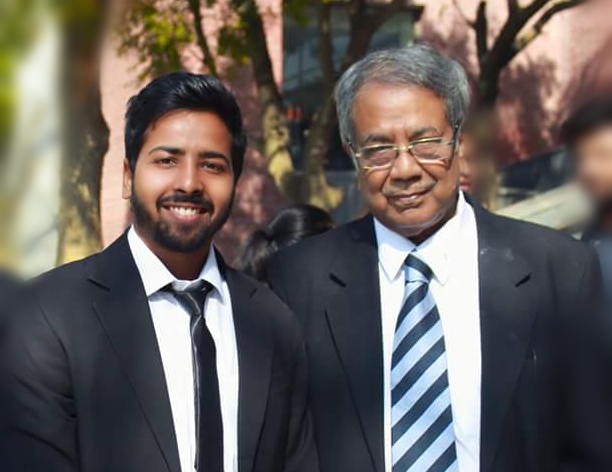Exclusive Interview: Padma Shri Dr T K Viswanathan, Secretary-General of the 15th Lok Sabha
Dr T K Viswanathan, Secretary-General of the 15th Lok Sabha is a legal luminary who has held various positions in the academia and Government of India. During the four decades of his career, Dr. T.K. Viswanathan has served as a Lawyer, a Professor of Jurisprudence, Secretary to Government of India in the Ministry of Law & Justice and… Read More »

Dr T K Viswanathan, Secretary-General of the 15th Lok Sabha is a legal luminary who has held various positions in the academia and Government of India. During the four decades of his career, Dr. T.K. Viswanathan has served as a Lawyer, a Professor of Jurisprudence, Secretary to Government of India in the Ministry of Law & Justice and chairman of various committees.
Few noteworthy contributions of the legend Dr T.K. Viswanathan
He has drafted many important landmark legislation over the past two decades like, The Information Technology Act 2000 which laid the basis for cyber law in India, the Competition Act 2002 and the Right to Information Act 2005, which have laid the foundation for a new jurisprudence in the Indian legal framework. As the Chairman of the Bankruptcy Laws Reforms Committee 2014 he was responsible for drafting of the Insolvency and Bankruptcy Code 2016. For his unparalleled contribution to the society, Government of India honoured him with Padma Shri in 2017.
Recently, Mr. Mayank Shekhar, Founder, Legal Bites got an opportunity to interview this legend. Here’s the excerpt of the same.
Legal Bites: Sir, it is said that without interpretation, the law means nothing. How do you reckon what law is necessary and needs to be brought into action on paper? Also, comment on law reforms.
Dr T K Viswanathan: Law reforms in India cruises on a very accidental basis. It is brought on the basis of litigation – where some hard cases come we try and amend the law. It is not the way we should attempt law reforms. I have been advocating that there has to be law in action studies which is not being done. You have to have empirical data on the acts which are being administered by every ministry. Law ministry cannot do that every ministry has got some act they are administering – they have to do that study.
Now the government wants to make absolute laws… that is ok. What is more important is to study how the existing law is working in practice, this is an agenda that is not taken up by anybody because it involves a huge effort. And I have been telling to involve law students, law colleges for empirical research – they will be the people will go to the field.
Legal Bites: Sir, how will you describe the relationship between law and technology?
Dr T K Viswanathan: Law and technology always had a very unhealthy relationship. Because technology is always ahead of the law and the social problems. We are finding it extremely difficult to keep pace with the advancement of technology.
Legal Bites: Sir, How was your Law school experience? Looking back, what all changes do you see – like the role of the internet? What activities were you involved in when in law school?
Dr T K Viswanathan: In our law colleges we didn’t have those tools, so we used to spend more time in the library. We students had a lot of interaction with each other. One of the things which I missed was, there were no moot court competitions. This was more popularized with Joseph International Moot Court Competition. Thereafter, it was started as a result of five-year law courses and an emphasis on clinical legal studies.
I was part of this transition, I was teaching at Madras Law College in 1983. That was the greatest thing that happened. Because a three-year law course didn’t produce good lawyers. In 5-year Law College people are committed to the profession.
Legal Bites: Sir, What are your comments on the cases of bankruptcy that have happened recently?
Dr T K Viswanathan: I was the chairman of the Bankruptcy Law Reforms Committee (BLRC) when this code was made and I believe that this is all on expected lines as the whole scenario is changing. These are all transitional problems, you won’t see any problem once everything gets settled.
Bankruptcy is not a stigma; market failure is a separate phenomenon. It’s just that when you borrow money, you have to be careful, you cannot use legal techniques to evade payment. The whole scenario will change in two-three years. All these present cases of the likes of Nirav Modi is a legacy problem which will settle down soon. Excess dependence on banks for the loan needs to be curtailed.
In future, the young entrepreneurs won’t have to go and beg the bank managers for a loan. Bank finance and collateral will be a thing of past.


